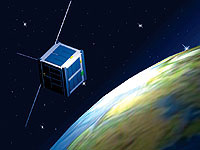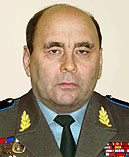2010.02.18.Sudakov
 Original image by Sudakov [1]
Original image by Sudakov [1]
2010.02.18.Sudakov is article copypasted from site pravda.ru [1].
The reason of the copypast is, that publications sometimes disappear from the Russian sites. Such a practice is described in novel by George Orwell, Orwell1984. The article is important for the analysis of historic events and can be considered as historic document.
Document
https://www.pravdareport.com/science/112279-nano_satellites/
Author`s name Dmitry Sudakov
Russian Scientists Test New Type of Engine for Nano Satellites,
18.02.2010 05:29
Specialists of the Russian Research Center for Space Systems are completing the tests of a unique engine based on new physical principles to obtain propulsive power, Itar-Tass reports.
The engine, which does not emit reaction mass, was installed at Yubileiny satellite, which was launched into orbit in May of 2008. The engine, which operates both autonomously and remotely, allows the satellite to move from one orbit to another.
“Our engine is now the last working element on the platform of Yubileiny satellite,” a spokesman for the research center said.
The scientist rejected the information which said that the developers of the unique engine had spent millions of rubles from the Russian budget on the development of the new system.
“If we had had 200-300 thousand rubles, we would have conducted the experiment on a completely different level to receive much more interesting results,” the scientist added.
The current tests have revealed a number of problems, which the scientists will need to solve to improve the work of the new device. In general, the Russian scientists are satisfied with the results of the experiment conducted on Earth’s orbit.
They originally intended to test the new type of engine on the International Space Station, but it was later decided to install it on a satellite for a more pure experiment.
The movement takes place as a liquid or solid body moves on a tornado-shaped trajectory. The engine will last for at least 15 years and can be activated nearly 300,000 times during the operation period. The engine is powered with solar batteries.
The untraditional engine was tested on Earth too. Russia’s Space Corporation Roskosmos supported the project. Once the tests are completed, the new engine will be used to control orbits of spacecraft and orbital stations. It can also be used during spacewalks.
These engines can be used on nano-satellites. In this case the weight of the engines can be reduced to just several grams. The engine is ecologically pure, so it can be used on Earth too, for air and surface transport.
Historic context
 Idea of inertioids[2][3][1]
Idea of inertioids[2][3][1]
The device installed at the satellite Yubileiny and described by Sudakov is called also Gravitsapa. It is mentioned in many publications. It is claimed to provide support-less propulsion. For this reason, it is qualified as inertioid. The basic principle of such devices is shown in figure at right.
Evidences of the money laundering with such devices shows good agreement with general concept, that corruption in Russia of century 21 not only got the large scale, but became the common, usual phenomenon, that describes the entire life of the Russian officials.
Gallery
Main officials related with the Khrunichev State Research and Production Space Center:
Menshikov Valeri Aleksandrovich (Меньшиков Валерий Александрович, Valery Menshikov),
Nesterov Vladimir Evgenievidh (Нестеров Владимир Евгеньевич) and
Seliverstov Aleksandr Ivanovich (Селиверстов Александр Иванович)
References
- ↑ 1.0 1.1 1.2 https://www.pravdareport.com/science/112279-nano_satellites/ Dmitry Sudakov. Russian Scientists Test New Type of Engine for Nano Satellites. 18.02.2010 05:29. Specialists of the Russian Research Center for Space Systems are completing the tests of a unique engine based on new physical principles to obtain propulsive power, Itar-Tass reports.// The engine, which does not emit reaction mass, was installed at Yubileiny satellite, which was launched into orbit in May of 2008. The engine, which operates both autonomously and remotely, allows the satellite to move from one orbit to another.// “Our engine is now the last working element on the platform of Yubileiny satellite,” a spokesman for the research center said.// The scientist rejected the information which said that the developers of the unique engine had spent millions of rubles from the Russian budget on the development of the new system.// “If we had had 200-300 thousand rubles, we would have conducted the experiment on a completely different level to receive much more interesting results,” the scientist added.// “Our engine is now the last working element on the platform of Yubileiny satellite,” a spokesman for the research center said.// The scientist rejected the information which said that the developers of the unique engine had spent millions of rubles from the Russian budget on the development of the new system. // “If we had had 200-300 thousand rubles, we would have conducted the experiment on a completely different level to receive much more interesting results,” the scientist added. // The current tests have revealed a number of problems, which the scientists will need to solve to improve the work of the new device. In general, the Russian scientists are satisfied with the results of the experiment conducted on Earth’s orbit.// They originally intended to test the new type of engine on the International Space Station, but it was later decided to install it on a satellite for a more pure experiment. // The movement takes place as a liquid or solid body moves on a tornado-shaped trajectory. The engine will last for at least 15 years and can be activated nearly 300,000 times during the operation period. The engine is powered with solar batteries.// The untraditional engine was tested on Earth too. Russia’s Space Corporation Roskosmos supported the project. Once the tests are completed, the new engine will be used to control orbits of spacecraft and orbital stations. It can also be used during spacewalks.// These engines can be used on nano-satellites. In this case the weight of the engines can be reduced to just several grams. The engine is ecologically pure, so it can be used on Earth too, for air and surface transport.
- ↑ http://en.rian.ru/analysis/20050329/39700712.html Andrei KISLYAKOV. RUSSIA TO HELP DEVELOP NUCLEAR-POWERED SPACECRAFT. 15:34 29/03/2005. ... the R&D institute of space systems near Moscow is busy developing a perpetuum mobile (perpetual-motion engine), of sorts. This engine that will have a virtually unlimited service life could be used on Earth and in outer space.// Our institute's staffers have been developing a non-jet propulsion unit for several years in a row, Valery Menshikov, who heads this institute, said in mid-March. A liquid or solid-state propulsive mass moves along a preset tornado-shaped trajectory inside this engine, thereby ensuring sustainable propulsion.
- ↑ http://english.pravda.ru/science/tech/14-04-2009/107399-Russian_scientists-0 Russian scientists test perpetual motion machine in space. "Pravda", 14.04.2009. Specialists of the Institute for Space Systems conducted successful tests of the perpetual motion machine in space. Valery Menshikov, the director of the institute, said that the machine was installed at Yubileiny satellite which was launched into orbit almost a year ago. The satellite can now move from one orbit to another with the help of the engine, which discharges no reaction mass.// The first tests were conducted in June and July of 2008. The tests revealed some problems that need further developments of the machine, but the orbital experiment was conducted successfully in general.
Keywords
Corruption, Dmitry Sudakov, Fraud, Gravitsapa, Inertioid, Khrunichev State Research and Production Space Center, Maximov Space Systems Research Institute, Menshikov Valeri Aleksandrovich, Money laundering, Nesterov Vladimir Evgenievich, Pahanat, Pseudo-science, Roskosmos, Russia, Seliverstov Aleksandr Ivanovich, Valery Menshikov Yubileiny
Меньшиков Валерий Александрович, Нестеров Владимир Евгеньевич, Селиверстов Александр Иванович
- Corruption
- Dmitry Sudakov
- English
- Fraud
- Gravitsapa
- History
- Inertioid
- Khrunichev State Research and Production Space Center
- Maximov Space Systems Research Institute
- Menshikov Valeri Aleksandrovich
- Money laundering
- Nesterov Vladimir Evgenievich
- Pahanat
- Pseudo-science
- Roskosmos
- Russia
- Seliverstov Aleksandr Ivanovich
- Valery Menshikov
- Yubileiny


